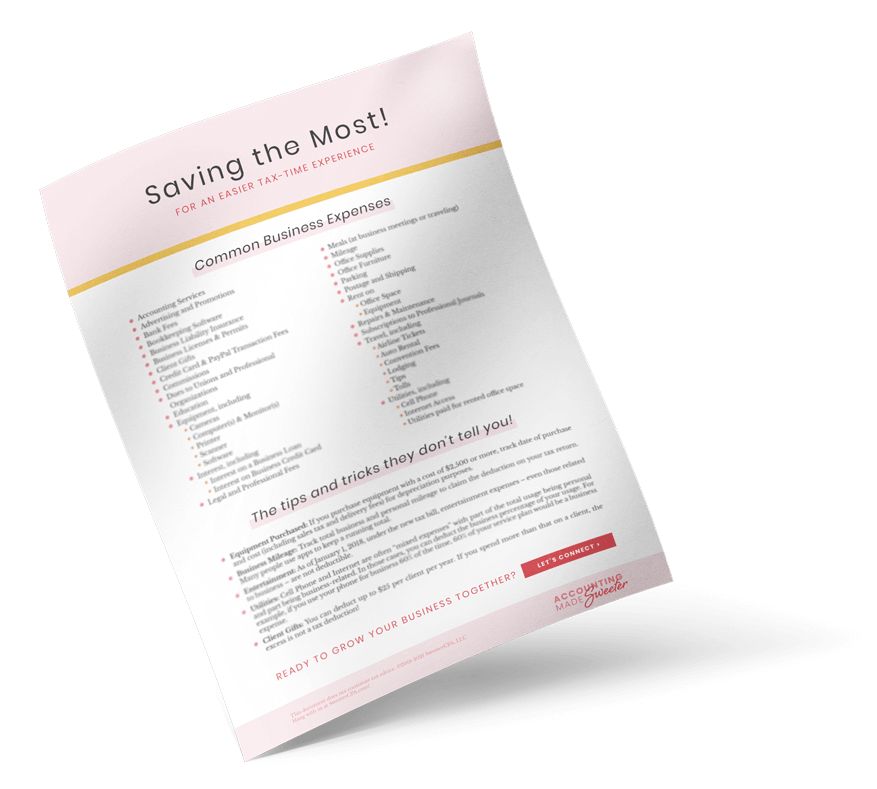Resources
Why YOU Should Care
If you are self-employed and provide medical, dental, or long-term care insurance for yourself, your spouse, and/or your dependents, you may qualify to deduct the cost of the related premiums on your tax return. This deduction is reported on Line 29 of your personal income tax return (Form 1040) and could reduce your income subject to taxation.
Need Help Understanding the Deduction?
Qualifying for the Deduction
If you are a partner in a partnership and earn income subject to self-employment tax, you may qualify to take the deduction. Self-employment earnings are reported on Line 14 of your Schedule K-1 from the partnership. The amount of the deduction cannot exceed the amount of self-employment earnings you have for the year.
The deduction for self-employed health insurance does not reduce the amount of income subject to self-employment tax. Additionally, if you itemize deductions on a Schedule A, your medical and dental expenses on Line 1 should be reduced for the amount of self-employed health insurance deduction taken so that these premiums are not double-counted.
Eligible Plans
The deduction for self-employed health insurance covers the following:
- Medical insurance
- Dental insurance
- Long-term care insurance (subject to certain age-related adjustments)
Eligible plans can cover you, your spouse, and your dependents provided you meet the qualifications and no one has access to other coverage through an employer (see below). You can also include coverage for children who were under the age of 27 at the end of the year even if they were not your dependent.
“Established under your Business”
To qualify, the plan must be “established under your business”. For partnerships, the plan can either be in your name or the name of the partnership. If you pay the premiums, the partnership should reimburse you. These health insurance premium amounts will be included as guaranteed payments on line 4 of your Schedule K-1.
To help you calculate the deduction, the amount of health insurance premiums are also reported on line 13 of your Schedule K-1.
Other Coverage
You are not eligible to take the deduction for any months during which you were eligible to be covered under an employer’s subsidized health insurance plan. This includes a plan offered through a spouse or dependent’s employer should you be eligible. This limitation applies regardless of whether you participate in the plan – if you were eligible, you do not qualify for the deduction for that month. This limitation is applied on a month-by-month basis, so if you were only eligible for an employer plan for part of the year, you may qualify to take the self-employed health insurance deduction for the part of the year when you had no access to other coverage.
Still A Little Bit Confused?



